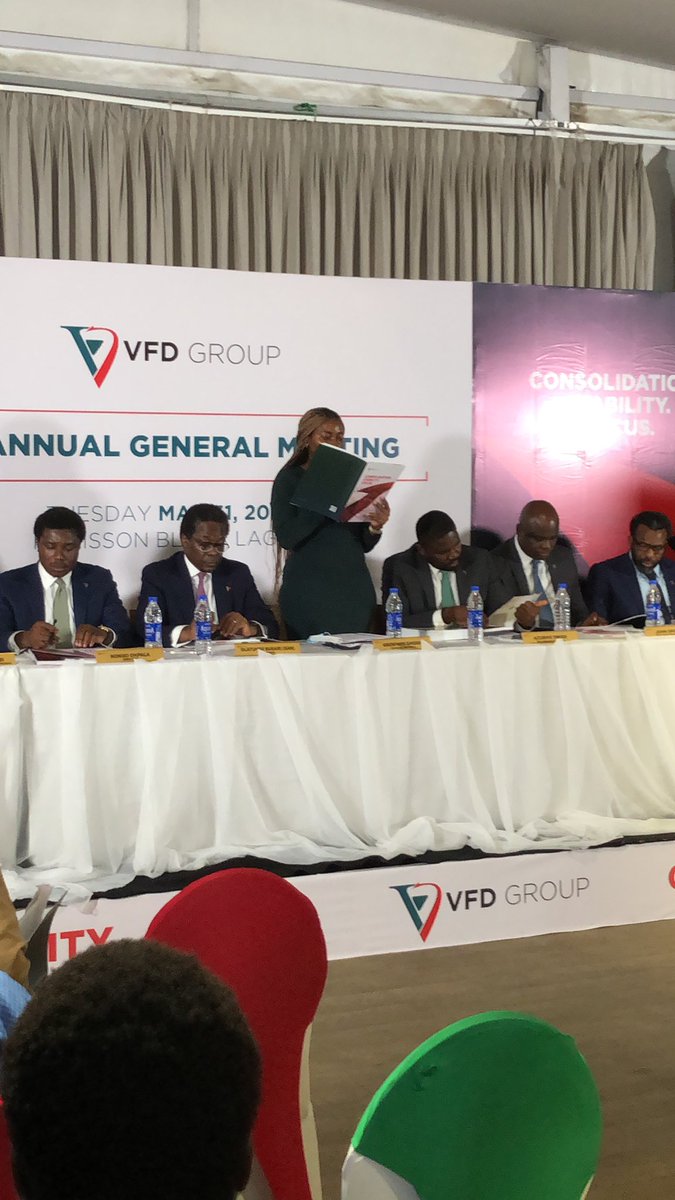
CBN ‘Ways and Means’ loan to the FG rise to N20 trillion as of June 2022
The Central Bank of Nigeria has extended a total sum of N19.9 trillion circa (N20 trillion) in loans to the Federal Government under its Ways and Means provision as included in the CBN Act.
Thread 1/9
The Central Bank of Nigeria has extended a total sum of N19.9 trillion circa (N20 trillion) in loans to the Federal Government under its Ways and Means provision as included in the CBN Act.
Thread 1/9

The Ways and Means provision allows the government to borrow from the Apex Bank if it needs short-term or emergency finance to fund delayed government expected cash receipts of fiscal deficits.
Provisions in the act cap monetary financing of fiscal deficits at 5%...
2/9
Provisions in the act cap monetary financing of fiscal deficits at 5%...
2/9
....of the prior year’s revenues.
However, since the government started experiencing a significant shortfall in revenue,
It has relied heavily on the central bank to finance its expenditure programs via Ways and Means.
According to the central bank’s....
3/9
However, since the government started experiencing a significant shortfall in revenue,
It has relied heavily on the central bank to finance its expenditure programs via Ways and Means.
According to the central bank’s....
3/9
According to data from the Central Bank of Nigeria, the Ways and Means balance at the end of 2021 was N17.4 trillion at the end of 2021 but has now risen to N19.9 trillion as of June 2022.
The CBN has now extended a total sum of N2.45 trillion in the first 6 months...
4/9
The CBN has now extended a total sum of N2.45 trillion in the first 6 months...
4/9
...of the year on track with a recent year’s credit extension. This is almost N5 trillion annualized.
The Buhari administration has relied heavily on Ways and Means as a source of financing its budget deficits especially as it presided over a period of historically...
5/9
The Buhari administration has relied heavily on Ways and Means as a source of financing its budget deficits especially as it presided over a period of historically...
5/9
...low oil prices, oil theft, and oil supply caps.
At about N20 trillion currently, the debt to the CBN is 25 times what it was in 2015 an unprecedented utilization of the Ways and Means provisions.
The Ways and Means of the Central Bank has been rising because the...
6/9
At about N20 trillion currently, the debt to the CBN is 25 times what it was in 2015 an unprecedented utilization of the Ways and Means provisions.
The Ways and Means of the Central Bank has been rising because the...
6/9
...Federal Government has not been able to meet its revenue projections.
For example in the first 9 months of 2021 the government budgeted about N4.9 trillion in apportioned revenue but only received N3.4 trillion.
Also, in the first four months of this year,...
7/9
For example in the first 9 months of 2021 the government budgeted about N4.9 trillion in apportioned revenue but only received N3.4 trillion.
Also, in the first four months of this year,...
7/9
FG budgeted a prorate revenue of N3.3 trillion but has only received N1.6 trillion or 49% of target.
Meanwhile, N4.7 trillion was incurred as expenditure out of which N1.9 trillion was for debt service or 119% of collected revenue.
This perhaps explains why funding...
8/9
Meanwhile, N4.7 trillion was incurred as expenditure out of which N1.9 trillion was for debt service or 119% of collected revenue.
This perhaps explains why funding...
8/9
...from CBN’s Ways and Means rose by N2.45 trillion in the first 6 months of the year.
Click on the link to see what the government is saying: nairametrics.com/2022/08/05/cbn…
Follow @Nairametrics for more updates.
#Nairametrics #Nigeria #news #Media #Finance #CBN #FG #Loan
9/9
Click on the link to see what the government is saying: nairametrics.com/2022/08/05/cbn…
Follow @Nairametrics for more updates.
#Nairametrics #Nigeria #news #Media #Finance #CBN #FG #Loan
9/9
• • •
Missing some Tweet in this thread? You can try to
force a refresh












